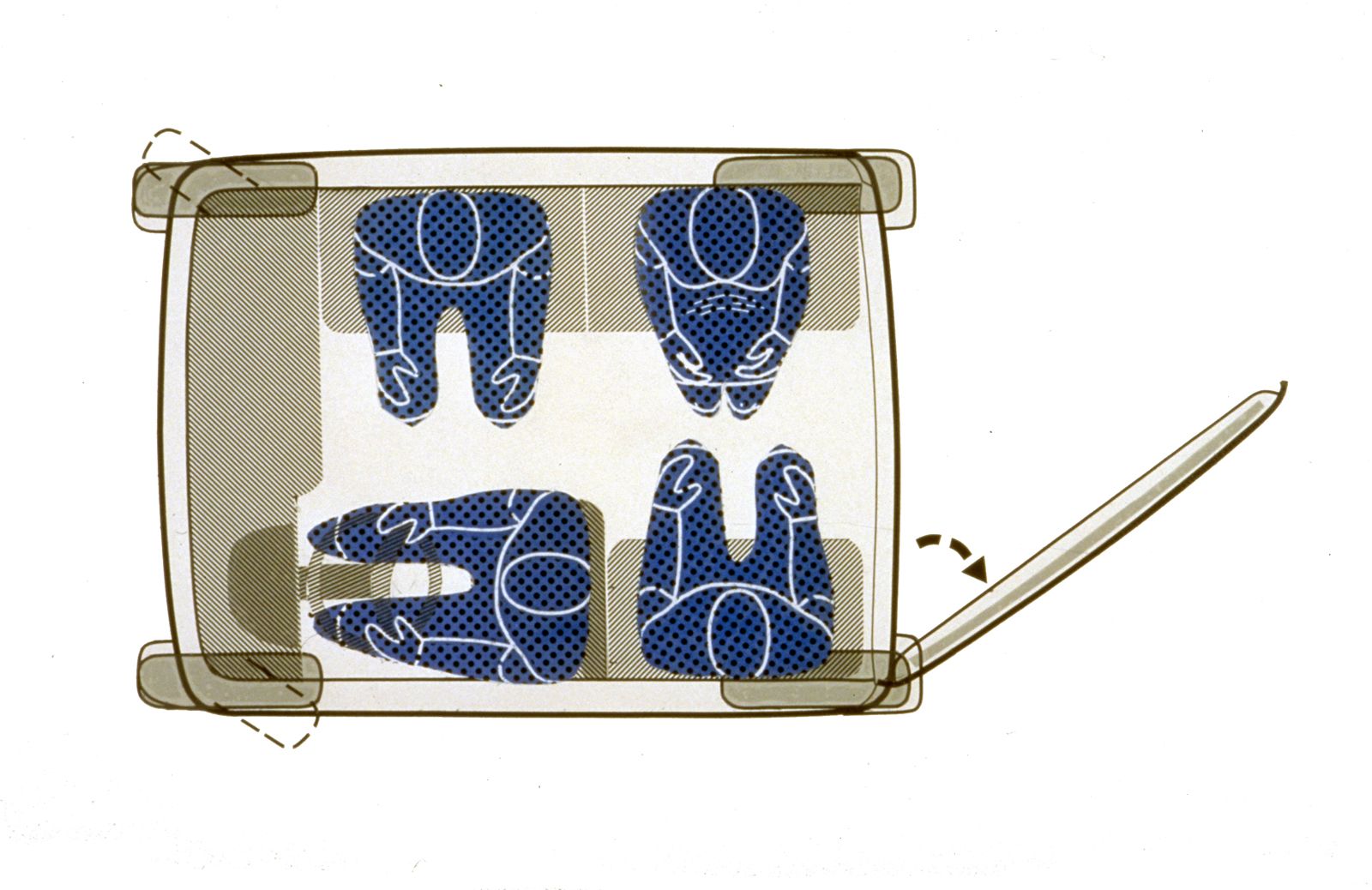
Compact, rational, eco-friendly, electric and designed for traffic in the historical centres of great cities: car sharing par excellence.
The Biga, introduced at the 1992 Turin motor show dates back to a design submitted by Giorgetto Giugiaro in 1989 to the “Assises Mondiales de l’Automobile” in Paris on these theme of “what cars for the year 2000″.
The Biga was therefore created as a specific and realistic eco-friendly alternative that could be mass-produced for town traffic.
It was the outcome of a close and rational analysis of the financial, environmental and social scenario; not a research prototype with futuristic, inaccessible lines but a car reduced to the essentials.
Designed with a view to future legal restrictions that would limit access by private cars to the historical centres of cities, the, Biga is part of a more extensive project aimed at traffic management. The Biga is therefore not merely a car for the city but also of the city: access on board is allowed by means of a personal card recorded in a database. Users may take a Biga from designated parking spaces, use it and re-park it in other dedicated parking spots.
Because it was designed for this particular use, Biga is a minimalist car; everything superfluous has been removed. The body is in special steels that guarantee lightness and sturdiness. The passenger compartment is a sort of cube designed to house the driver and three passengers or the driver and one passenger in a wheelchair due to a bench located on one side of the car.
Access is via a single tailgate at the rear, exactly as on a Roman chariot. This makes it possible to optimise spaces around town: the deal parking spot is at right angles to and not parallel to the pavement so that passengers can get out directly onto the pavement. The height of the car is also designed to facilitate entry with a wheelchair as much as possible. Because it does not have any side doors, Bigas may be parked next to one another without having to take up room for opening conventional doors.
Approximately 2 m in length and one and a half metres wide, the Biga is equipped with a hybrid system made up of a small diesel engine coupled with an alternator that supplies energy to the batteries to guarantee traction and transmission.
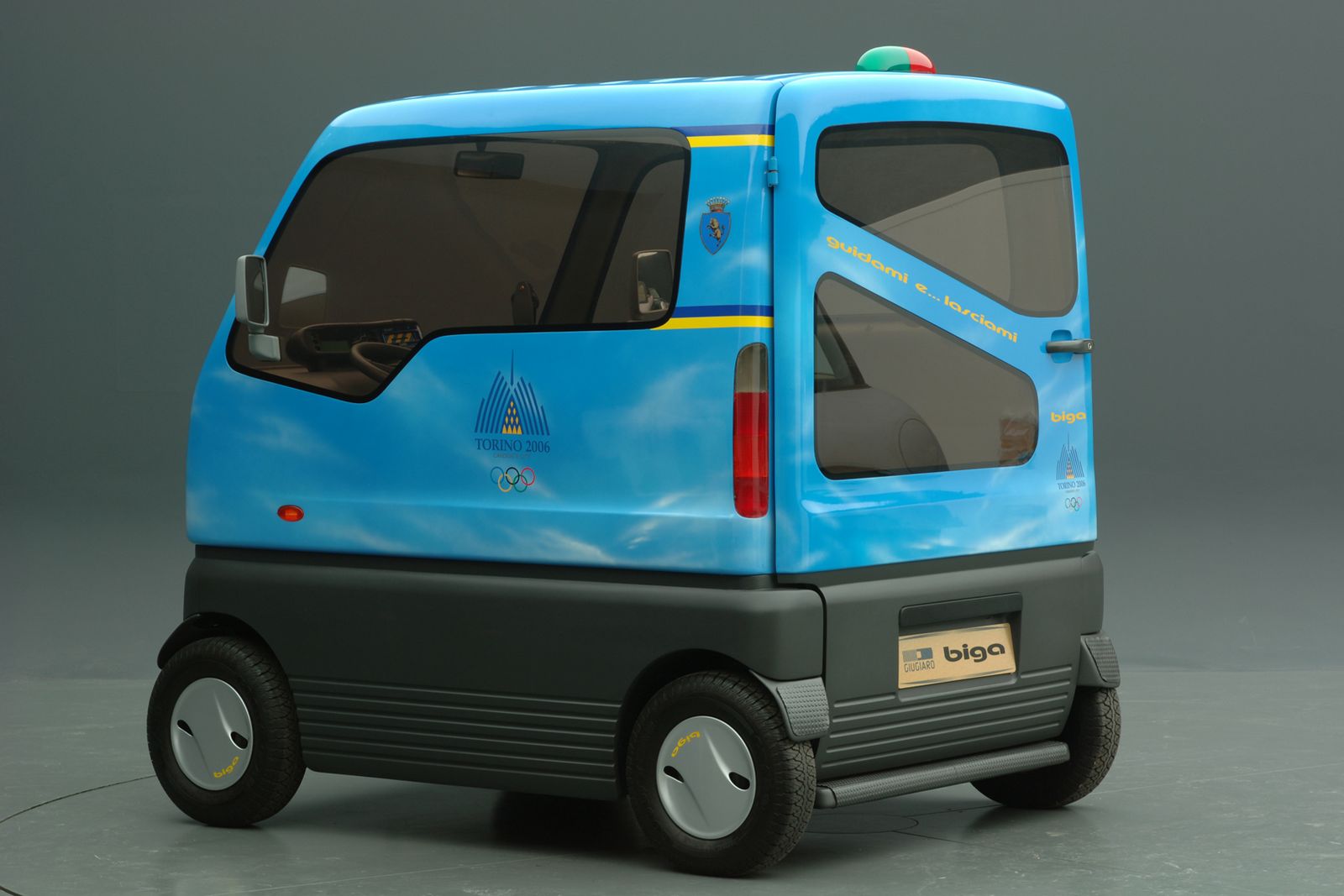
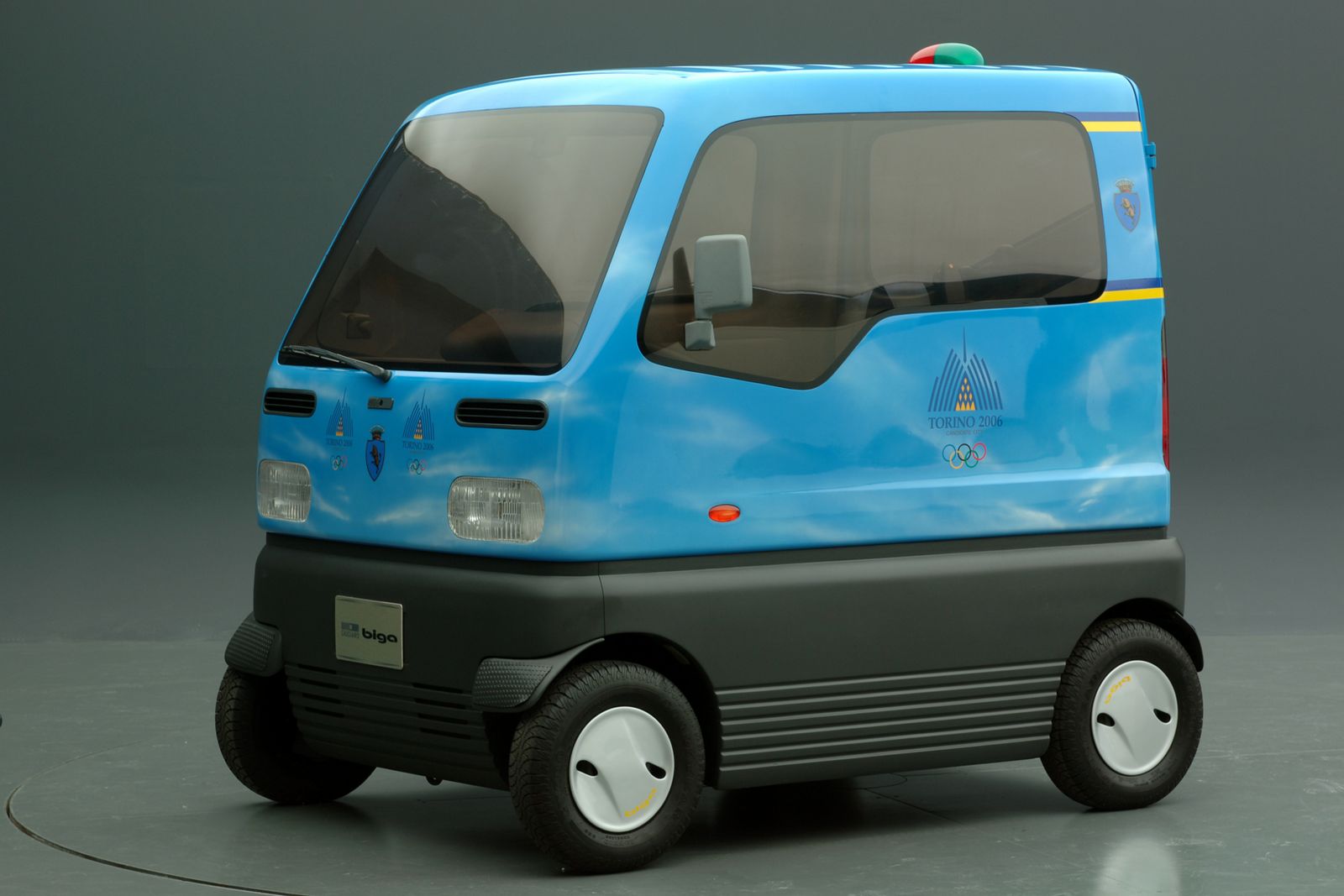
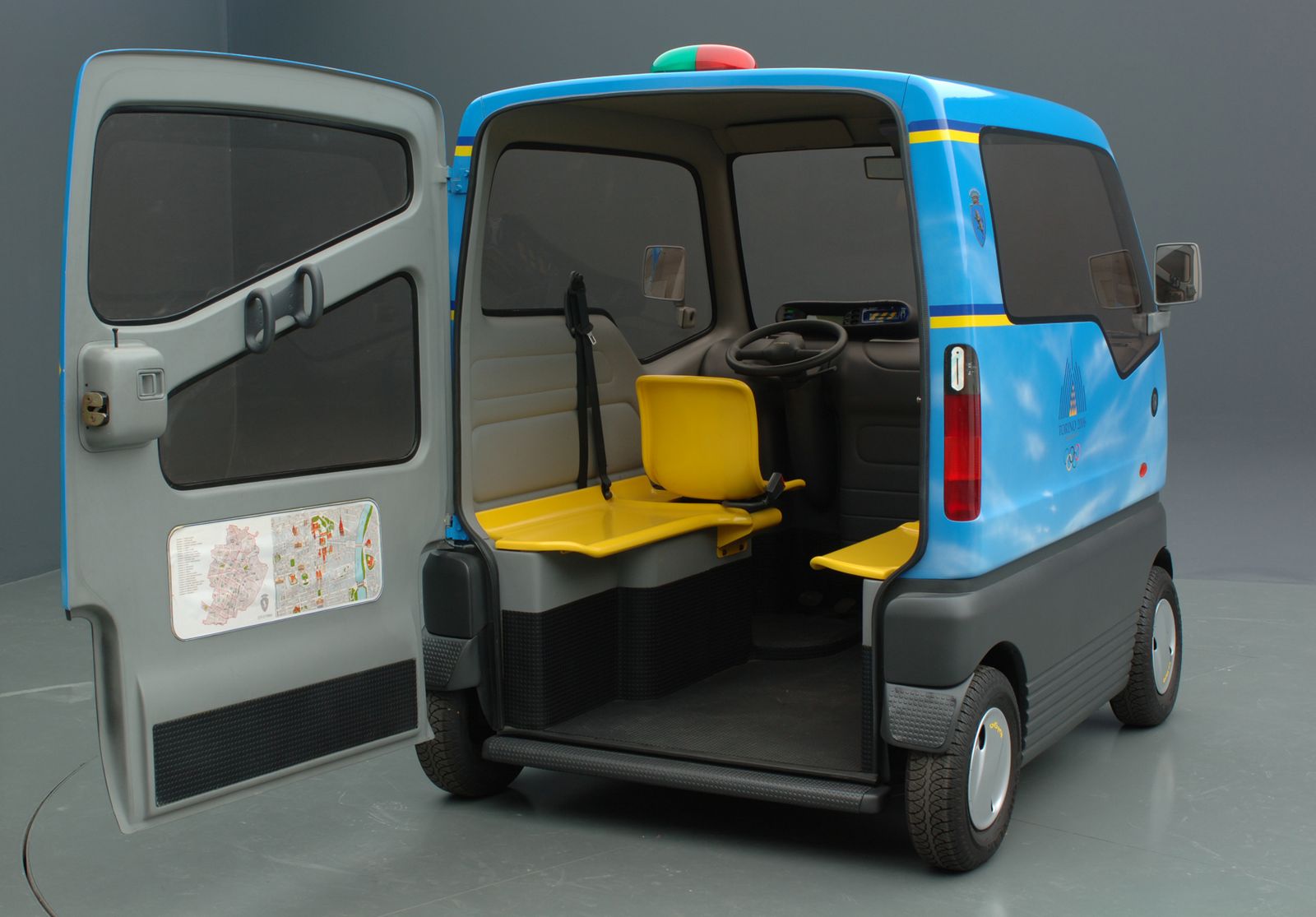
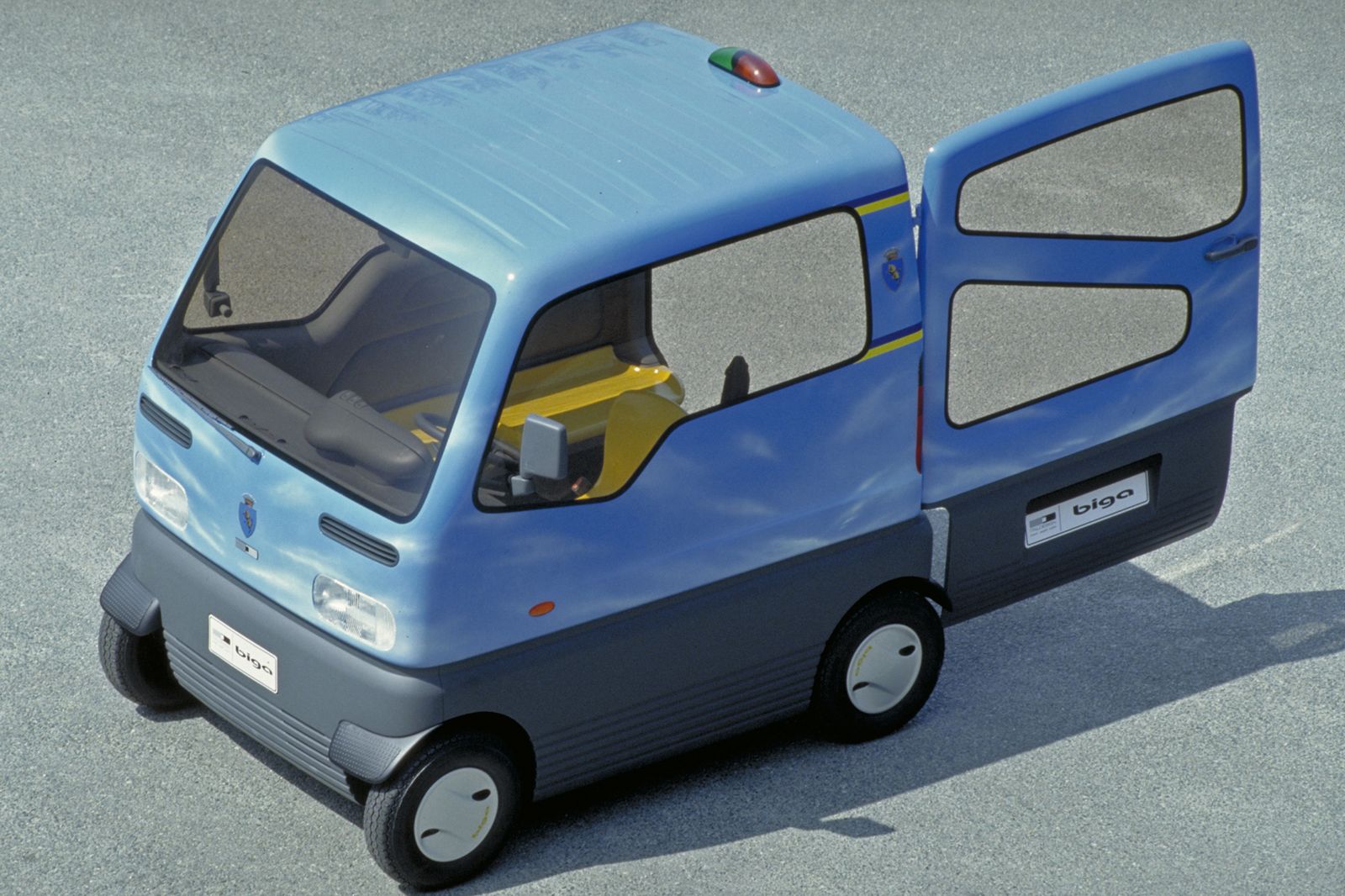
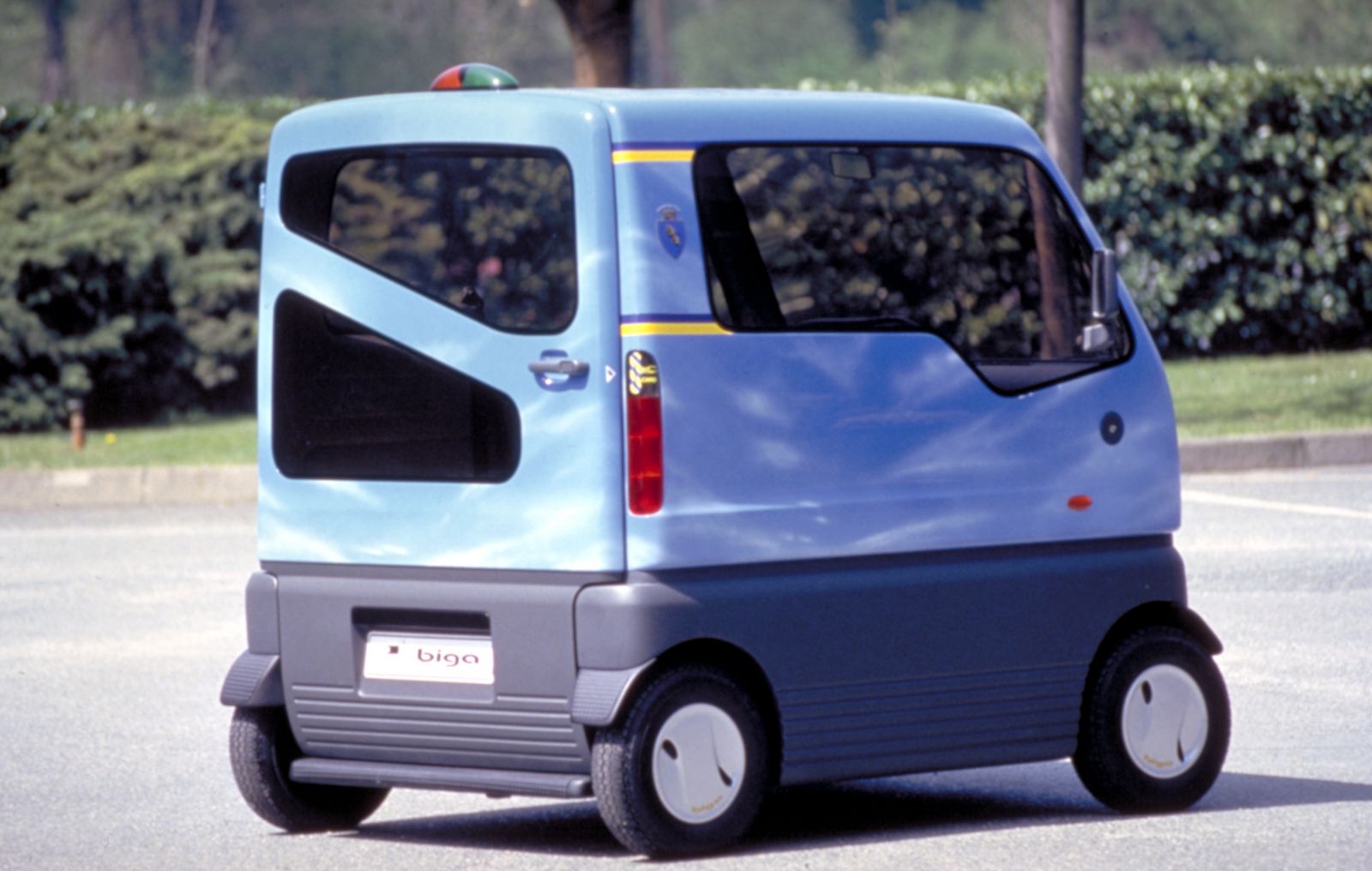
Categories
- Automotive

